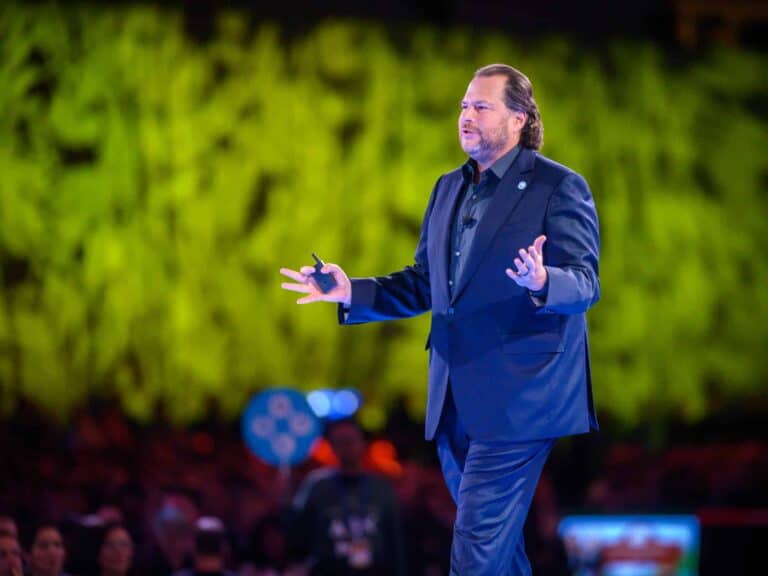At least 30 percent of work at Salesforce is performed by AI, according to CEO Marc Benioff. It just so happens he’s made the same estimate as his Microsoft counterpart Satya Nadella and reiterates an earlier statement, too.
Benioff estimates that 30 to 50 percent of the work at Salesforce is performed by AI. The exact tasks vary, from software engineering to customer service. In April, Microsoft reported a similar percentage for AI: Nadella stated at the time that 30 percent of the current programming code from Microsoft is artificial in nature. In October last year, Google CEO Sundar Pichai was slightly more conservative: 25 percent of the company’s code is now generated by AI.
Definition unknown
It is striking that the estimates are so similar. After all, it is not entirely clear exactly which tasks have been automated, whether this has directly led to job losses, and whether the company mainly relies on internally developed tools or also purchases them. What is certain is that Benioff has already identified AI as a replacement for future job vacancies. At the end of last year, this figure was again 30 percent, this time as an estimate of the productivity boost that software engineers would experience thanks to AI.
Benioff’s statements are not just boasting about his own efficiency or AI capabilities. He seems to be on the same page as his Salesforce colleagues. A research team at the company recently predicted that AI agents will automate so many tasks that one in four employees will have to find a new job by 2025. This does not necessarily mean layoffs, even though that has been common practice among virtually all major tech companies in recent years. After all, the role of an IT professional is changing with the emergence of new technology.
For Salesforce and other parties that are heavily focused on agentic AI, this shift will be a gold mine. The same study states that the technology will experience adoption growth of 327% between now and 2027. The productivity gains: yes, 30%.
Profits everywhere
The Salesforce study also explains why Benioff, Nadella, and Pichai’s explanations are so vague. HR leaders expect to see a convergence of human and artificial work, with employees gradually handing over tasks to digital tools. Looking back at studies from 2023, when GenAI was just becoming a familiar term, we saw a little more variety. While most studies reported roughly 10-30 percent, there were outliers such as the Nielsen Norman Group with an astonishing 66 percent productivity gain. We no longer see those numbers today.
Warnings about cultural issues and the proper framing of AI tasks proved to be essential as early as 2023. Keep in mind, this was before agentic AI was really marketed, with AI tooling that actually performs tasks on behalf of a user. However, the puzzle is not yet complete: even now, it is clear that GenAI makes staff more productive, but also demotivates them. If this trend of poor cultural adaptation continues, the productivity gains could easily be wiped out. That is why Benioff, Nadella, and Pichai will have to focus on the 70 percent that cannot be automated.
